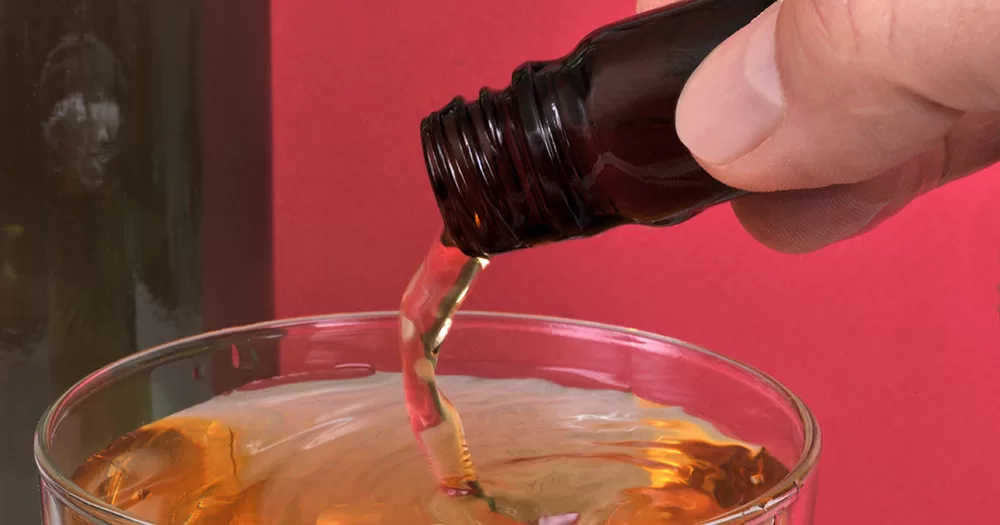As the popularity of chemsex has risen in Ireland, an expert has warned about the dangers of addiction to certain drugs, particularly gamma hydroxybutyrate, also known as GHB, GBL or G. The drug is said to be highly addictive, with great variance in potency levels which increases the user’s risk of passing out or overdosing.
Chemsex involves the use of substances like G, crystal methamphetamine, cocaine, ketamine and mephedrone to enhance sexual activity, and it is often associated with but not limited to gay, bisexual and other men who have sex with men (gbMSM). Dr Fiona Fenton, Consultant Psychiatrist in Substance Misuse at the National Drug Treatment Centre, spoke to The Journal about the practice, drawing particular attention towards GHB addiction.
“People use it for a while and get caught up in it and don’t realise how addictive it is, that they have a problem,” Dr Fenton stated.
“It’s so accessible now that they can be using it for a while before they realise. They think they can manage it, but the withdrawals are very severe.
“There are people who hold down jobs. There are people who use it at home, who use it just to relax before they go out for a night out because they find that it’s a very cheap and easy way to get a buzz or to be in a very relaxed state going out. It’s not all to do with sex parties,” she added.
The National Drug Treatment Centre’s Club Drugs Clinic is sometimes referred to as the ‘G clinic’ due to it being the most common substance that patients are fighting addiction to. In 2022, of the 24 people who availed of the service, 78% were male and 22% were female, and there was an age range of 24 to 62. Of these patients, over 90% had used G at parties for chemsex.
When trying to quit the drug, Dr Fenton explained that the withdrawal symptoms can be very intense.
“It’s like a very severe alcohol withdrawal but multiply it by about 100. So it’s very severe – sweating, shaking, abdominal cramps, muscle cramps, nausea, vomiting, all of those,” she said.
“In its most severe form, they can get psychiatric problems, even psychosis. It’s what we would call an agitated delirium. When people are in that space, they need to be in hospital.”
The Club Drugs Clinic offers patients an initial programme that takes about 14 days to complete before individualised care plans are developed depending on a person’s needs. While Diazepam is prescribed for those dealing with withdrawal symptoms, psychosocial interventions like therapy are also very important treatment options.
Regarding harm reduction for those using drugs, Dr Fenton advised, “Don’t use on your own, start low and go slow, use with a friend, look out for each other.”
In terms of fighting addiction to GHB and other drugs related to chemsex, she continued by explaining that “Engaging with support, particularly the peer-to-peer support, particularly people who used it before – say, gay men who have used it before and have stopped and come out the other side – is actually what really works.”
View this post on Instagram
In light of more people engaging in chemsex in Ireland, MPOWER, a programme developed by HIV Ireland, has hired a new team member to develop a service related to the practice.
“It’s great that we’re able to have someone dedicated to this and, with that kind of dedicated focus, be able to properly understand what the community needs and build upon that,” MPOWER Programme Manager Adam Shanley shared with The Journal.
While the Club Drugs Clinic serves people who are often in “emergency or really difficult situations,” MPOWER runs workshops “where people can better understand their triggers and their use, and it allows for there to be a skill base to recognise when it’s not just the odd weekend anymore”.
“The whole basis of all the work that we do is to be non-judgmental, and meet the person where they’re at. And be sex positive as well, recognising that people have a wide interest in pleasure.
“All of our staff are well skilled and best placed to offer that support and make sure that any of the referral pathways that we put people on, that we’re connecting them with culturally-competent services,” Shanley stated.
MPOWER has a Sex Party First Aid Guide which can be found here. For anyone looking for support surrounding G use, addiction or chemsex, there are a number of services available including MPOWER, Gay Men’s Health Service, Gay Health Network, Man2Man.ie, and the National Drug Treatment Centre.
© 2024 GCN (Gay Community News). All rights reserved.
Support GCN
GCN is a free, vital resource for Ireland’s LGBTQ+ community since 1988.
GCN is a trading name of National LGBT Federation CLG, a registered charity - Charity Number: 20034580.
GCN relies on the generous support of the community and allies to sustain the crucial work that we do. Producing GCN is costly, and, in an industry which has been hugely impacted by rising costs, we need your support to help sustain and grow this vital resource.
Supporting GCN for as little as €1.99 per month will help us continue our work as Ireland’s free, independent LGBTQ+ media.

comments. Please sign in to comment.